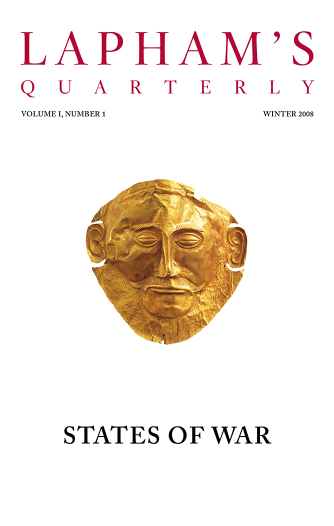The invention of “printing,” though ingenious, compared with the invention of “letters,” is no great matter. But who was the first that found the use of letters is not known. He that first brought them into Greece, men say, was Cadmus, the son of Agenor, king of Phoenicia. A profitable invention for continuing the memory of time past, and the conjunction of mankind, dispersed into so many and distant regions of the earth; and withal difficult, as proceeding from a watchful observation of the diverse motions of the tongue, palate, lips, and other organs of speech; whereby to make as many differences of characters, to remember them. But the most noble and profitable invention of all other was that of “speech,” consisting of “names” or “appellations,” and their connection; whereby men register their thoughts, recall them when they are past, and also declare them one to another for mutual utility and conversation; without which, there had been among men, neither commonwealth, nor society, nor contract, nor peace, no more than among lions, bears, and wolves. The first author of “speech” was God himself that instructed Adam how to name such creatures as he presented to his sight, for the Scripture goeth no further in this matter. But this was sufficient to direct him to add more names, as the experience and use of the creatures should give him occasion, and to join them in such manner by degrees as to make himself understood; and so by succession of time, so much language might be gotten as he had found use for, though not so copious as an orator or philosopher has need of: for I do not find anything in the Scripture out of which, directly or by consequence, can be gathered that Adam was taught the names of all figures, numbers, measures, colors, sounds, fancies, relations, much less the names of words and speech, as “general,” “special,” “affirmative,” “negative,” “interrogative,” “optative,” “infinitive,” all which are useful—and least of all, of “entity,” “intentionality,” “quiddity,” and other insignificant words of the school.
But all this language gotten and augmented by Adam and his posterity was again lost at the Tower of Babel, when, by the hand of God, every man was stricken, for his rebellion, with an oblivion of his former language. And being hereby forced to disperse themselves into several parts of the world, it must needs be that the diversity of tongues that now is proceeded by degrees from them in such manner as need, the mother of all inventions, taught them, and in tract of time grew everywhere more copious.
The general use of speech is to transfer our mental discourse into verbal, or the train of our thoughts into a train of words; and that for two commodities, whereof one is the registering of the consequences of our thoughts, which, being apt to slip out of our memory and put us to a new labor, may again be recalled by such words as they were marked by. So that the first use of names is to serve for “marks” or “notes” of remembrance. Another is when many use the same words to signify by their connection and order, one to another, what they conceive or think of each matter—and also what they desire, fear, or have any other passion for. And for this use they are called “signs.” Special uses of speech are these: first, to register what by cogitation we find to be the cause of anything, present or past, and what we find things present or past may produce or effect—which in sum, is acquiring of arts. Secondly, to show to others that knowledge which we have attained, which is, to counsel and teach one another. Thirdly, to make known to others our wills and purposes that we may have the mutual help of one another. Fourthly, to please and delight ourselves and others by playing with our words, for pleasure or ornament, innocently.
To these uses there are also four correspondent abuses. First, when men register their thoughts wrong by the inconstancy of the signification of their words, by which they register for their conception that which they never conceived, and so deceive themselves. Secondly, when they use words metaphorically, that is, in other sense than that they are ordained for, and thereby deceive others. Thirdly, by words, when they declare that to be their will, which is not. Fourthly, when they use them to grieve one another, for seeing nature hath armed living creatures, some with teeth, some with horns, and some with hands, to grieve an enemy, it is but an abuse of speech, to grieve him with the tongue, unless it be one whom we are obliged to govern—and then it is not to grieve, but to correct and amend.
From Leviathan. Hobbes’ father, a vicar, abandoned his wife and three children when he got into a fight at the door of his own church. Hobbes graduated from Oxford University in 1608 and published the first Greek-to-English translation of Thucydides in 1629. Believing that the life of man in a state of nature was “solitary, poor, nasty, brutish, and short,” he argues the case in Leviathan for a strong sovereign ruler to create a state of security. His mention here of a “train of our thoughts” is the first known use of the phrase.
Back to Issue





